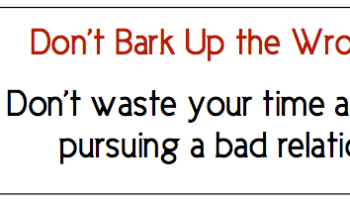PETALING JAYA: A public spat between the late Lee Kuan Yew’s children has shattered the usually serene political landscape in Singapore, with two siblings accusing their brother Prime Minister Lee Hsien Loong of abusing his powers.
Kuan Yew’s daughter Dr Lee Wei Ling and son Lee Hsien Yang accused their big brother Hsien Loong of, well, acting like “Big Brother”, with Hsien Yang going so far as to say he was fleeing the country.
“We are concerned that the system has few checks and balances to prevent the abuse of government.
“We feel big brother omnipresent. We fear the use of the organs of state against us and Hsien Yang’s wife, Suet Fern,” the two said in a six-page statement that was also posted on Facebook early yesterday morning.
Hsien Yang’s son, Li Shengwu, said the situation had become so bad that the family planned to relocate overseas.
“In the last few years, my immediate family has become increasingly worried about the lack of checks on abuse of power.
“The situation is now such that my parents have made plans to relocate to another country, a painful decision that they have not made lightly,” he said on Facebook.
Wei Ling and Hsien Yang also accused their brother of trying to establish a political dynasty and wanting to “milk” their father’s legacy.
They said Hsien Loong and his wife Ho Ching – the CEO of state investor Temasek Holdings – harboured political ambitions for their son Li Hongyi, who works at government agency GovTech Singapore.
The heart of the matter seems to be the siblings’ unhappiness that Hsien Loong was not following their father’s wishes in demolishing the family home at 38 Oxley Road.
Before he passed away in March 2015, Kuan Yew had already expressed his desire that the house he moved into and lived in since 1945 be demolished because he did not want it becoming a “political shrine”.
That desire was part of his last will and testament, but the current prime minister has declined to follow through.
His siblings have attributed this refusal to Hsien Loong’s political ambition.
“Indeed, Hsien Loong and Ho Ching expressed plans to move with their family into the house as soon as possible after Kuan Yew’s passing,” said Wei Ling and Hsien Yang.
“This move would have strengthened Hsien Loong’s inherited mandate for himself and his family.
“Moreover, even if Hsien Loong did not live at 38 Oxley Road, the preservation of the house would enhance his political capital,” they said.
Hsien Loong, who is travelling overseas with his family, said he was disappointed and saddened by his siblings for “publicising private family matters”.
“I am deeply saddened by the unfortunate allegations that they have made.
“Ho Ching and I deny these allegations, especially the absurd claim that I have political ambitions for my son.
“Since my father’s passing in March 2015, as the eldest son I have tried my best to resolve the issues among us within the family, out of respect for our parents.
“My siblings’ statement has hurt our father’s legacy,” Hsien Loong said in a statement posted on Facebook.
Singaporeans seem divided on the matter.
On Hsien Yang’s Facebook page, he was greeted by more criticism than praise, with some accusing him of being the one who had tainted his father’s legacy.
“A family feud that is aired so openly is a sad thing to see,” said Dolpzy Do.
On Hsien Loong’s Facebook, it was generally the opposite.
Pointing out that Kuan Yew had passed away over two years ago, Jacq Low said, “His last will should have been settled by now.”
While such a public spat is rare in Singapore, it is not unprecedented. Last year, as the island-republic commemorated the first anniversary of Kuan Yew’s death, Wei Ling went public with similar concerns.
In a family feud that played out on Facebook, she said the elaborate events were not what her father would have wanted, and that he would have cringed at such “hero worship”.
Wei Ling, a neurosurgeon, also accused Hsien Loong of abusing his power and using the anniversary to try and establish a political dynasty.
Hsien Loong replied via Facebook, saying he was “deeply saddened” by the accusations, describing them as “completely untrue”.
Source: The Star
PM Lee’s family feud becomes more heated
PETALING JAYA: The public spat between Singapore Prime Minister Lee Hsien Loong (pic) and his siblings became more heated Thursday, with the younger brother accusing the older of not being truthful.
The two younger children of Singapore’s founder and longest-serving premier Lee Kuan Yew, Dr Lee Wei Ling and Lee Hsien Yang, took to Facebook to air their grievances.
Hsien Yang accused his brother of not being truthful over the issue of their father’s wish to have the family home demolished.
Before he passed away in March, 2015, Lee Kuan Yew had expressed his desire that the house at 38 Oxley Road be demolished because he did not want it becoming a “political shrine.”
He had made that part of his last will and testament.
In a Facebook post, Hsien Yang compared what he said were Hsien Loong’s statements in public and those in private.
Hsien Yang said that despite the prime minister saying in public that the decision to demolish the house did not need to be taken immediately, a “secret committee” of ministers was set up to explore and make recommendations.
When Lee Kuan Yew’s will was recognised as final and legally binding, Hsien Loong did not mount a legal challenge.
However, he privately wrote to the above committee to say that there was no evidence their father knew that the demolition clause “had been reinstated into the last will,” the younger brother alleged.
Hsien Yang also claimed that the prime minister even swore this under oath in a statutory declaration.
Finally, while saying in public that he hoped the government would respect their father’s wish to have the house demolished, Hsien Loong told the committee in private that Lee Kuan Yew would have “accepted any decision to preserve it.”
“The will is final and binding. We have no confidence in Lee Hsien Loong or his secret committee,” Hsien Yang said in his Facebook post.
The tiff between Lee Kuan Yew’s children, simmering since their father’s death, had its lid blown open on Wednesday when the two younger siblings posted an explosive six-page statement saying that they had lost confidence in their elder brother.
Wei Ling and Hsien Yang also accused Hsien Loong of using the state machinery against them.
“We fear the use of the organs of state against us and Hsien Yang’s wife, Suet Fern,” they said.
Hsien Yang, chairman of the Civil Aviation Authority of Singapore, said it had got so bad that he and his family intended to move out of the country.
Wei Ling and Hsien Yang also accused their older sibling of trying to establish a political dynasty and wanting to “milk” their father’s legacy.
They said Hsien Loong and his wife Ho Ching – the chief executive officer of state investor Temasek Holdings – harboured political ambitions for their son Li Hongyi.
In an immediate response on Wednesday, Hsien Loong said he was “deeply saddened by the unfortunate allegations that they have made.”
“Ho Ching and I deny these allegations, especially the absurd claim that I have political ambitions for my son,” he said, adding that he was disappointed in his siblings for publicising private family matters.
However, in a Facebook post on Thursday, his sister Wei Ling said she and her brother would not have issued a public statement if the dispute over their late father's house was “merely a family affair”.
Source: The Star/ANN
Related Links:
PM Lee releases summary of statutory declarations over Oxley Road house
















 Our cars are costing us our homes!
Our cars are costing us our homes!  Malaysian school systems: http://www.globalchildhoods.net/index.php?page=malaysia
Malaysian school systems: http://www.globalchildhoods.net/index.php?page=malaysia









